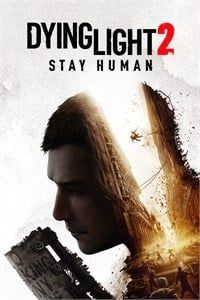Dying Light 2's Techland revealed a 500-plus-hour completion time — controversy followed, but why?
Lengthy completion times used to be all the rage, but people are growing tired of them.
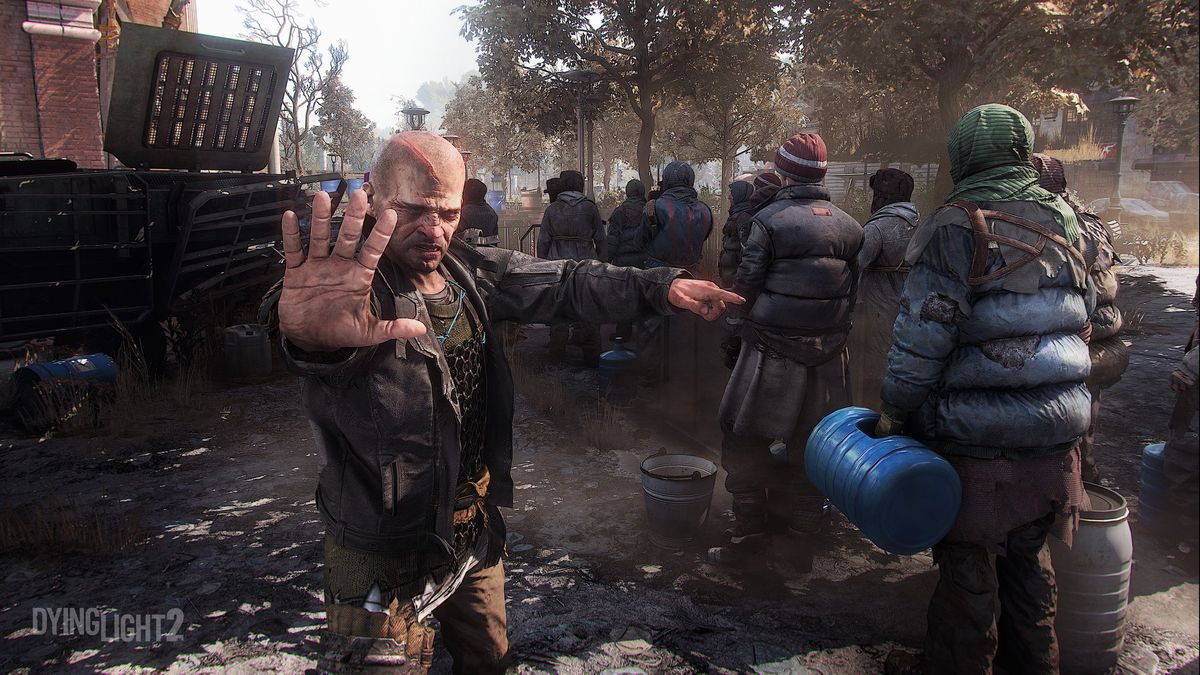
In the post-Skyrim era, even before I was a writer, I distinctly remember marketing discourse for open-world games that revolved entirely around comparisons to Skyrim. "Our world is two times bigger than Skyrim," publishers would say, and articles professing gameplay length would be seen as emphasizing value for money. In the last few years, however, something has changed.
This past week, Dying Light 2 publisher Techland revealed on Twitter that the game has a 500-plus-hour completion time, painted wholly in a positive light. Perhaps unexpectedly for them, the internet didn't react entirely favorably to this news.
To fully complete Dying Light 2 Stay Human, you'll need at least 500 hours—almost as long as it would take to walk from Warsaw to Madrid!#DyingLight2 #stayhuman pic.twitter.com/Sk3KFpRJoATo fully complete Dying Light 2 Stay Human, you'll need at least 500 hours—almost as long as it would take to walk from Warsaw to Madrid!#DyingLight2 #stayhuman pic.twitter.com/Sk3KFpRJoA— Dying Light (@DyingLightGame) January 8, 2022January 8, 2022
Instead of being happy about the 500-plus potential hours of entertainment Dying Light 2 may contain, people reacted with skepticism and even horror about the gameplay "length," worrying that it would be too big, or simply filled with padding and busywork making up said 500+ hour figure. The reactions even forced a climbdown from Techland, where they go on to explain the main quests would warrant around 80 hours of gameplay.
I thought the responses to this marketing attempt were quite interesting, especially considering I can distinctly remember a time in my younger days where 500-plus hours would be met with excitement, rather than lamentation. What changed?
The Ubisoft Effect
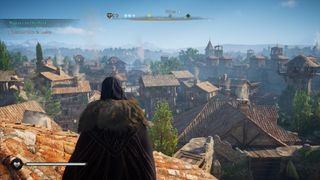
Ubisoft can't be blamed entirely for this, but being completely honest, they are a massive proponent of why I think people have become fatigued with the open-world format.
Ubisoft is an open-world game factory. Each of their games, from Far Cry, to Ghost Recon, to Assassin's Creed, popularized the open-world action game to the point where the company barely even considers making linear experiences anymore. There was a brief flicker of time where Ubisoft would build unique games like Child of Light, and more cinematic action games like Splinter Cell, but those times are long past.
Ubisoft also churns out these kinds of games at an almost alarming rate. Just over the past few years, we've had Watch Dogs: Legion, Assassin's Creed Valhalla, Far Cry 6, and Ghost Recon Breakpoint, all of which share many of the same story themes, gameplay systems, navigation, and mission structure. To say Ubisoft-style open-world games are formulaic would be an understatement at this point. I remarked upon it in my Far Cry 6 review. I kept having to remind myself while playing, "Imagine you're someone who isn't absolutely sick of Ubisoft's games." I say this because, on the surface of it, all of these games are of generally high quality as a standalone experience. The problem is, they all morph into this homogenous blob that has come to typify what people expect of an "open-world" game these days.
Get the Windows Central Newsletter
All the latest news, reviews, and guides for Windows and Xbox diehards.
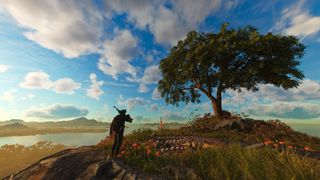
I remember similar thoughts while writing my Halo Infinite preview. The opening of the game is exciting and cinematic, immediately embedding you into this perilous new situation in which Master Chief finds himself. After the intro, you emerge from the bowels of Zeta Halo onto the surface ... an open world, and a tutorial started rolling showing me how to unlock new areas, towers, I thought, and a familiar sense of dread washed over me. "Is this Halo: Far Cry?" I thought to myself. Thankfully, it very much wasn't, focusing on interactive sandbox tools in what is ultimately a wide-linear structure, rather than Ubisoft's artificially large plains designed for maximum engagement, rather than fun.
Therein lies one of the reasons I think people reacted with alarm to Dying Light 2's "500 hours" quip. Is Dying Light 2 going to be another flat, repetitive, and bland open-world with high-fidelity busywork masquerading as gameplay, designed entirely around building a nice graph for a shareholder meeting? Or is Dying Light 2 going to be more like The Elder Scrolls, with hand-crafted interior locations, with unique and interesting character-driven quests?
Even if Dying Light 2 is comprised entirely of raw fun and hand-made content, there are plenty of other reasons why reactions to "500 hours" now is different from what it was 10 years ago or more.
Backlogs a' growin', free time a' shrinkin'
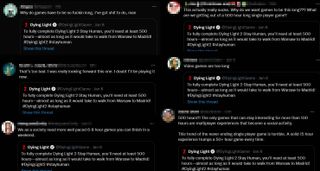
Gamers are getting older. Yes, you reading this. You're getting old. I'm getting old. We're all getting old. And it seems that in correlation with getting old, comes with diminished free time. I know it's certainly true of myself, despite literally working in a job that revolves around game coverage. I probably completed fewer games than ever last year, mainly focusing on those I played for work. Outside of that, I've barely had the time.
According to a study by Statista, in 2019, 41% of 35- to 44-year-olds responded to the question of, "Have you played a video game?" leaping up a massive rise to 76% in 2021. A huge portion of that can undoubtedly be attributed to the pandemic, but even in earlier years, gamers in older demographics were growing steadily year over year, and the pandemic likely pushed that trend even further. I suspect many older gamers who got into the industry as a result of work-from-home policies the world over are likely going to stick with gaming even further, which could further impact the way completion times are perceived as being "too long."
Having kids, demanding jobs, doing school runs, having side-hustles, and so on, all put a stressor on our availability for leisure. There are growing calls around the world to reduce the working week to four days as a result of this pressure on free time, but there are other factors too.
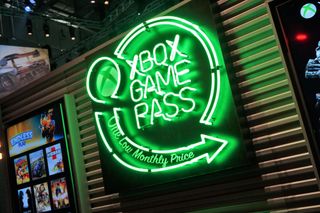
There also seems to be more competition for our free time than ever too, owing to on-demand streaming services like Disney+ and Netflix. Xbox Game Pass coupled with EA Play also increases the availability of high-quality entertainment experiences too.
Increasingly, game publishers need to manage the conflict between forced engagement and respecting players' time. I know for myself, it will likely be a very, very long time before I consider playing a Ubisoft open-world again, simply because I don't think these games are designed to respect my free time, with development led entirely by engagement at the expense of building a fun, lasting experience. It's somewhat ironic that I've been finding more enjoyment from lower-budget games lately, purely because they often don't have the means to make something that demands my entire supply of free time to fully enjoy.
That being said, if a game is fun enough, I'll still happily spend dozens of hours within it, but that's just me. It does seem to have become a trend in recent years that open-world games aren't fun by design, thanks to Ubisoft and other publishers who are building these sparse experiences. I wonder how much of the skepticism revolving around Dying Light 2's completion time stems from the fear that it won't actually be a fun and varied experience.
What if Dying Light 2 is actually fun, though?
Indeed, I have no idea what to expect of Dying Light 2. My last preview of the game was several years ago. I did Dying Light 2 and Cyberpunk 2077 previews back to back at E3, and I distinctly remember thinking Dying Light 2 looked more polished and interesting than Cyberpunk 2077 did. It's also easy to hide a game's flaws in a built-for-press preview slice, potentially.
Dying Light 2's development has been difficult, according to some reports. The developers famously opted to remove all of the content in the game penned by Chris Avellone, following abuse accusations, which no doubt further frustrated development too. The first Dying Light launched all the way back in 2015, and this sequel has certainly been a long time coming.
UPDATE:
500 hours is related to maxing out the game - finishing all the quests, endings, and exploring every part of the world, but a regular player should finish the story + side quests and do quite a lot of exploring in less than 100 hours, so don't worry! 🥰 https://t.co/4R641zkLpgUPDATE:
500 hours is related to maxing out the game - finishing all the quests, endings, and exploring every part of the world, but a regular player should finish the story + side quests and do quite a lot of exploring in less than 100 hours, so don't worry! 🥰 https://t.co/4R641zkLpg— Dying Light (@DyingLightGame) January 8, 2022January 8, 2022
The original Dying Light was a pretty great game in its own right, but I have to admit — much like the Ubisoft open-worlds, I ended up getting tired of the busy work, and ultimately never fully finished it. Dying Light 2 looks to be far more story-driven than its predecessor, with gameplay decisions that can dramatically impact its zombie-infested world, although it remains to be seen whether they can break through the Curse of Ubisoft, and deliver something that is unique and has some lasting impact. The fact that Dying Light 2 shares a launch month with Elden Ring — another demanding open-world game — just adds to the pressure.
I remain optimistic for Dying Light 2, however, and it remains one of my most anticipated Xbox games. If a game is fun enough, I'll happily stick with it for dozens upon dozens of hours, because ultimately, this is all about fun. I have several hundred hours in Monster Hunter World, and I suspect I'll end up with a few hundred hours in Dark Souls too, which I only got into relatively recently.
It's understandable that the industry has become skeptical of these hundreds of hours gameplay claims, especially in an era defined by open-world blandness. Will Dying Light 2 break the curse? I suppose we'll find out on Feb. 4.

Jez Corden is the Executive Editor at Windows Central, focusing primarily on all things Xbox and gaming. Jez is known for breaking exclusive news and analysis as relates to the Microsoft ecosystem while being powered by tea. Follow on Twitter (X) and Threads, and listen to his XB2 Podcast, all about, you guessed it, Xbox!
